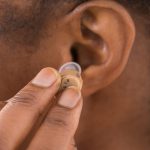Beginning this month, you can no longer put that old TV or computer out on the curb with the rest of your trash. Pennsylvania’s Covered Device Recycling Act goes into effect and requires the proper recycling of all TVs and computer equipment, including items such as computer monitors, central processing units, laptops, printers, scanners, keyboards, mice, speakers and any other devices that connect to a computer.
According to the U.S. Environmental Protection Agency, 40 percent of lead and 70 percent of other toxics found in landfills, including mercury and cadmium, are from electronics. Even small amounts of these toxics can be dangerous if released into the air, water and soil. These metals and associated materials can have both localized and systemic adverse health effects, especially to children and other vulnerable populations. Exposure prevention reduces the health burden.
Donating or recycling consumer electronics conserves our natural resources and avoids air and water pollution, as well as greenhouse gas emissions that are caused by manufacturing virgin materials. Electronic waste recycling protects our health and environment by keeping these substances out of our landfills and incinerators.
Recycling of electronic waste for homeowners or businesses with fewer than 50 people is free at publicly accessible drop-off locations. There are a variety of Electronics Collections Programs at manufacturer and retail locations, as well as public recycling drop-off locations in Allegheny County. For drop-off locations in other Pennsylvania counties, visit the Department of Environmental Protection website. You also may search Earth911to find a recycling center near you.
Visit the Pa. Department of Environmental Protection for more information, or call its toll-free hotline at 1-800-346-4242 for questions about electronic recycling.
For more information about research of children’s environmental exposure risks, visit the the Children’s Pediatric Environmental Medicine Center.
For more information about research on environmental carcinogens and their impacts, visit UPMC Cancer Center’s Center for Environmental Oncology.








